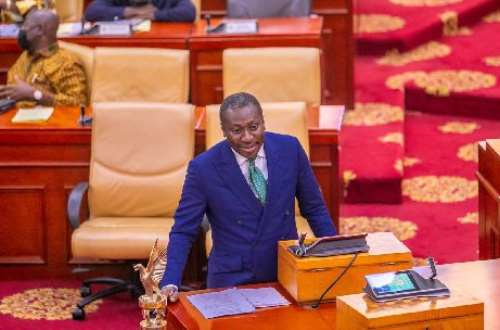
The Majority Leader and Member of Parliament for Effutu constituency, Alexander Afenyo-Markin, has called on the legislature to periodically review its rules governing procedure and the workings of the house.
According to him, such reviews will enable the legislature to reflect the demands of deliberative representation and the oversight responsibilities of the country’s lawmaking body.
The 8th parliament has commenced the use of its new standing orders, which have been described by political watchers as “revolutionary”.
Speaking at a capacity workshop on the new standing orders, Alexander Afenyo-Markin urged MPs to fully arm themselves with the standing orders.
The Effutu lawmaker maintained that such capacity-building initiatives may not attain their set goals and objectives if “the rules governing the house are not reviewed periodically to be in tandem with changing trends and developments”.
“In order for the house to discharge our deliberative representational financial control information dissemination and legislative oversight and responsibilities efficiently and effectively, there is a need for these rules as contained in the standing orders to be revised,” the Majority Leader emphasised.
Also, Mr Afenyo-Markin noted that revising the rules will ensure that both committee-level and plenary proceedings are “abreast with the changing dynamics of governance and the political environment”.
The new standing orders, according to the Majority Leader, have afforded colleague MPs who do not hold any positions in government or opposition and sit behind the front benches the chance to add their views to parliamentary proceedings, which was hitherto not the case.
“For the first time, an opportunity is given to backbenchers who usually do not get the opportunity to have their day and it allows them to articulate their views and bring meaningful proposals and statements to enhance their legislative work,” said Mr Afenyo-Markin.
Meanwhile, the Speaker of Parliament, Alban Bagbin, has underscored that the new 2024 standing orders of parliament will address Ghana’s dynamic and hybrid parliamentary democracy.
According to the Speaker, the processes and procedures in the House are challenged, with time and practice exposing the gaps and deficiencies in the November 2000 Standing Orders.
He further indicated that the present composition of the House has brought those gaps and deficiencies into sharper focus, even though, those deficiencies surfaced as far as early 2001.
“We must start aligning the conduct of business in the House with the evolving and changing trends and requirements of our Parliament. We need to know how to apply and cope with the January 2024 Standing Orders which has replaced the 2000 Orders.
“These are some of the reasons we are here today. As we say in Africa, “When the drummers alter their beats, the dancers must adjust their steps,” he added.
The current Standing Orders of Parliament, which came into effect on January 2, 2024, assure the effective and efficient performance of Parliament and Parliamentarians.
DISCLAIMER: The Views, Comments, Opinions, Contributions and Statements made by Readers and Contributors on this platform do not necessarily represent the views of Ahotor FM.




